UPSC Daily Current Affairs - 17th January 2024 | Current Affairs & Hindu Analysis: Daily, Weekly & Monthly PDF Download
GS-I
Kolam Tribes
Subject: Social Issues
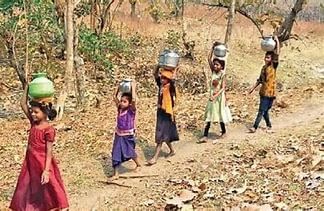
Why in News?
The Central government will extend basic facilities to the endangered Kolam tribe under the Jan Jati Adivasi Nyay Maha Abhiyan, with a focus on health and education.
About Kolam Tribes:
- Kolam tribes, also known as Kolamboli, Kulme and Kolmi, occupy a major portion of Madhya Pradesh.
- The main concentration of this tribe is on the plains and in the mountainous region.
- These tribal groups are reckoned as scheduled tribes and apart from Madhya Pradesh they reside in some parts of Maharashtra and Andhra Pradesh.
- They are listed as Particularly Vulnerable Tribal Group (PVTG) in the state of Maharashtra and Andhra Pradesh.
- History:
- Around the twelfth century, the Kolam served as priests for the Gond, representing some of their important gods.
- It is generally accepted that the Kolam descended from the original population in the area.
- Since they now live near the Gond, they have adopted much of the Gond lifestyle.
- The Kolam people are divided into different clans, like Chal Deve, Pach Deve, Saha Deve, and Sat Deve.
- Marriages between the same clans are not permissible.
- The Kolams use the name of their clans as their surnames.
- Their society is patrilineal, meaning that the line of descent is traced through the males.
- The Kolam are mainly farmers and forest worker In times past, they used shifting cultivation on the hill slopes. Today, they primarily live as settled farmers and use plough cultivation.
- They speak a Dravidian language called Kolami, and nearly all of the adults also speak Marathi, Telugu, or Gondi.
- They also speak other languages like Marathi, Telugu or Gondi.
- For writing, this Kolam tribal community uses the Devanagari script.
Source: Deccan Chronicle
Panama Canal
Subject: Geography

Why in News?
Scientists recently stumbled upon a lost forest in the Panama Canal, dating back around 22 million years.
About Panama Canal:
- It is an artificial waterwaythat connects the Atlantic Ocean with the Pacific Ocean.
- The canal cuts across the Isthmus of Panama and is a conduit for maritime trade.
- It was cut through one of the narrowest saddles of the isthmus that joins North and South America.
- It is one of the two most strategic artificial waterways in the world, the other being the Suez Canal.
- It is approximately 80 kilometres long.
- It consists of a series of locks that raise and lower the water level to facilitate the passage of ships through the continental divide.
- History:
- France began work on the canal in 1881, but financial troubles and diseases made the initiative fail.
- The United States took over the project on May 4, 1904, and opened the canal on August 15, 1914, and then managed the waterway until 1999.
- On December 31, 1999, Panama took over full operation, administration, and maintenance of the Canal, in compliance with the Torrijos-Carter Treaties negotiated with the United States in 1977.
Source: Republic World
Pakke Paga Hornbill Festival
Subject: Art and Culture
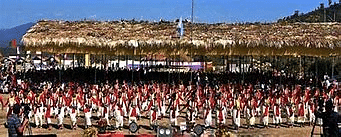
Why in News?
The 9th edition of the Pakke Paga Hornbill Festival (PPHF) is set to take place in Arunachal Pradesh, highlighting the region’s commitment to wildlife conservation, with a special focus on hornbills.
- This festival, scheduled from January 18-20, 2024, at Seijosa in the Pakke Kessang district, brings together diverse communities to unite in their efforts to protect these iconic birds and promote environmental awareness.
Pakke Paga Hornbill Festival
- Festival’s Theme: “Domutoh Domutoh, Paga hum Domutoh”
- Meaning: Translating to “Let Our Hornbills Remain” in the Nyishi language, this year’s theme underscores the critical importance of preserving these magnificent birds.
- Conservation Advocacy: PPHF serves as a platform to advocate for the protection of hornbill populations and their natural habitats.
Emphasis on Wildlife Conservation
- Hornbill Species: The Pakke Tiger Reserve (PTR) in Arunachal Pradesh is home to four hornbill species: Wreathed, Great Indian, Oriental Pied, and the endangered Rufous-necked hornbill.
- Nyishi Tribal Contribution: The festival recognizes the Nyishi, Arunachal Pradesh’s largest tribal group, for their pivotal role in hornbill conservation. They transitioned from hunting hornbills to becoming advocates for their preservation.
- Alternative Income: PPHF aims to generate alternative sources of income for the region and raise awareness about PTR and its surroundings, fostering economic development while preserving the environment.
Source: PIB
Thiruvalluvar Day
Subject: Art and Culture
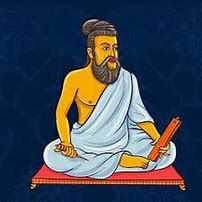
Why in News?
Thiruvalluvar, an eminent figure in Tamil culture, has recently stirred controversy over the representation of his image and attire by TN Governor and the CM.
About Thiruvalluvar Day
- Thiruvalluvar Day is usually celebrated either on the 15th or 16th of January in the state of Tamil Nadu.
- The day is quite similar to Raksha Bandhan where women pray for the well-being of their brothers.
- The women perform the rituals in the morning. Rice is put at the centre of a leaf as a part of the ritual while the women ask for the well-being of their brothers.
- This is followed by an Arati and turmeric water is sprinkled on the “kolam”.
Who was Thiruvalluvar?
- Thiruvalluvar, also known as Valluvar, is a revered Tamil poet-saint who holds a special place in the hearts of Tamils, transcending caste and religious boundaries.
- The exact period during which he lived and his religious affiliation remain subjects of debate.
- Some place him in the third or fourth century, while others date him to the eighth or ninth century.
- His religious identity varies, with some considering him a Hindu, some associating him with Jainism, and Dravidian groups regarding him as a saint due to his rejection of the caste system.
- Thirukkural, his principal work, consists of 1330 couplets (kurals) and is categorized into three parts, offering teachings on dharma (virtue), artha (wealth), and kama (love).
Significance of Robes
- Political Influence: Depictions of Thiruvalluvar, including his attire, have been molded by various political groups over time, despite limited historical information.
- Scholar Insights: Scholars suggest that Thiruvalluvar’s affiliation was likely Jain, not Hindu or Dravidian. His appearance, including white robes, is a relatively recent interpretation.
- Disputed Symbolism: The controversy surrounding the color of Thiruvalluvar’s robes stems from differing political agendas and interpretations of his verses.
Thiruvalluvar’s Relevance Today
- Archaeological Discoveries: Recent excavations at Keeladi near Madurai have pushed the history of Tamilagam (Sangam Era) back by at least 300 years, bolstering Dravidian historians’ assertions of their ancient heritage.
- Keeladi Context: The Keeladi findings have ignited debates between supporters of Hindutva and those upholding the Dravidian perspective. While no Hindu idols were found at Keeladi, interpretations vary on the presence of ‘Hindu’ elements.
Source: PIB
GS-II
Foreign Contribution Regulation Act (FCRA)
Subject: Polity

Why in News?
Recently, the Home Ministry cancelled the Foreign Contribution Regulation Act (FCRA) registration of the Centre for Policy Research.
Background:-
- One of the reasons cited is that the institute published reports on “current affairs programmes”, which is a violation of the Act.
About the Foreign Contribution Regulation Act (FCRA):-
- The Ministry of Home Affairs (MHA) is responsible for regulating FCRA in India.
- The Foreign Contribution Regulation Act (FCRA) was enacted during the Emergency in 1976 amid apprehensions that foreign powers were interfering in India’s affairs.
- The law sought to regulate foreign donations to individuals and associations so that they functioned “in a manner consistent with the values of a sovereign democratic republic”.
- The FCRA was amended in 2010 and 2020 by the government to give tighter control and scrutiny over the receipt and utilization of foreign funds by NGOs.
Definition of foreign contribution:-
- It defines the term ‘foreign contribution’ to include currency, articles other than gifts for personal use and securities received from foreign sources.
- While foreign hospitality refers to any offer from a foreign source to provide foreign travel, boarding, lodging, transportation or medical treatment cost.
FCRA Registration:-
- NGOs that want to receive foreign funds must apply online in a prescribed format with the required documentation.
- FCRA registrations are granted to individuals or associations that have definite cultural, economic, educational, religious, and social programs.
- Following the application by the NGO, the MHA makes inquiries through the Intelligence Bureau into the antecedents of the applicant and accordingly processes the application.
FCRA Exceptions and Prohibitions:-
- Prohibited Categories: Foreign donations are not permitted for candidates during elections, journalists, media broadcast companies, judges, government servants, members of the legislature, political parties or their office-bearers, and organizations of a political nature.
- Eligibility Criteria: Applicants must not be fictitious, prosecuted for conversion activities, involved in creating communal tension or disharmony, or engaged in the propagation of sedition.
Significance:–
- The Foreign Contribution (Regulation) Act (FCRA) plays a crucial role in regulating foreign donations in India.
- It ensures the utilization of foreign funds for legitimate purposes, prevention of activities detrimental to the national interest, and maintaining transparency and accountability.
Source: The Hindu
National Essential Diagnostics List
Subject: Governance
Why in News?
Recently, ICMR started revising current National Essential Diagnostics List for the first time.
Background:-
- The list contains the minimum diagnostic tests that should be available at healthcare facilities; ICMR asked stakeholders to submit suggestions on addition, deletion of tests by the end of February.
About National Essential Diagnostics List:-
- It is a list that would provide guidance to the government for deciding the kind of diagnostic tests that different healthcare facilities in villages and remote areas require.
- The World Health Organisation (WHO) released the first edition of the Essential Diagnostics List (EDL) in May 2018.
- Even though WHO’s EDL acts as a reference point for the development of national EDL, India’s diagnostics list has been customised and prepared as per the landscape of India’s health care priorities.
- In India, diagnostics are regulated under the regulatory provisions of the Medical Device Rules, 2017.
- Diagnostics (medical devices and in vitro diagnostics) follow a regulatory framework based on the drug regulations under the Drugs and Cosmetics Act, 1940 and Drugs and Cosmetics Rules 1945.
- The Indian Council of Medical Research released the first National Essential Diagnostics List (NEDL) in 2019 to make the availability of diagnostics an essential component of the health care system.
- NEDL has been developed for all levels of health care – village level, primary, secondary and tertiary care.
- It includes a group of general laboratory tests for routine patient care and for diagnosis of communicable and non-communicable diseases.
- It also recommends list of human resources such as ASHA workers, lab technicians pathologists for different levels of health care as per the proposed list of diagnostics.
Significance:-
- This NEDL aims to bridge the current regulatory system’s gap that does not cover all medical devices and in-vitro diagnostic devices (IVD).
Source: The Hindu
GS-III
African cheetah
Subject: Environment and Ecology
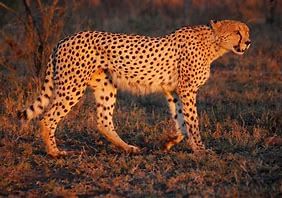
Why in News?
Recently, experts have appealed to IUCN to upgrade Horn of Africa cheetah status to ‘endangered’.
Background:-
- A group of experts have appealed to the International Union for Conservation of Nature (IUCN) to reclassify the status of the Northeast African Cheetah (Acinonyx jubatus soemmeringii), found in the Horn of Africa, to ‘endangered’ from ‘vulnerable’.
About Africa cheetah:-
- Scientific Name: Acinonyx jubatus jubatus
- Habitat: African Savannahs.
- They have a long, slender body measuring 1.2 meters (4 feet), with a long tail (65–85 cm ) to balance, that generally ends in a white tuft.
- Their weight ranges from 34 to 54 kg (75 to 119 pounds), males being slightly larger than females.
- They are bigger in size as compared to Asiatic Cheetah.
- They have small black round spots all over their body, black markings running from the inside of the eye to the corner of the mouth.
- Its very name originates from Sanskrit and means ‘the spotted one’.
- They prey on small antelopes, mammals, birds.
- They are the fastest of all land animals.
Conservation status:-
- IUCN status: Vulnerable
- CITES: Appendix I
Source: Down To Earth
Pinaka Weapon System
Subject: Defence and Security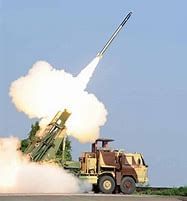
Why in News?
According to defence officials, two South American countries have shown interest in the Pinaka multi-barrel rocket launchers.
About Pinaka:
- Pinaka is a Multi-Barrel Rocket Launcher (MBRL).
- The Pinaka MBRL is designed by the Armament Research and Development Establishment (ARDE), a laboratory of the DRDO.
- It was first used during the Kargil War, where it successfully neutralised Pakistan Army positions on the mountain tops.
- It delivers lethal and responsive fire against a variety of area targets, such as exposed enemy troops, armoured and soft-skin vehicles, communication centres, air terminal complexes, and fuel and ammunition dumps.
- Features:
- It consists of a multi-tube launcher vehicle, a replenishment-cum-loader vehicle, a replenishment vehicle, and a command post vehicle.
- The launcher system is supported on four hydraulically actuated outriggers at the time of firing.
- It has a range of 60 to 75 kilometres.
- The system is mounted on a Tatra truck for mobility.
Source: The Hindu
|
51 videos|5378 docs|1139 tests
|
FAQs on UPSC Daily Current Affairs - 17th January 2024 - Current Affairs & Hindu Analysis: Daily, Weekly & Monthly
| 1. What are the Kolam tribes? |  |
| 2. What is the significance of the Panama Canal? |  |
| 3. What is the Pakke Paga Hornbill Festival? |  |
| 4. What is Thiruvalluvar Day? |  |
| 5. What is the Foreign Contribution Regulation Act (FCRA)? |  |
















